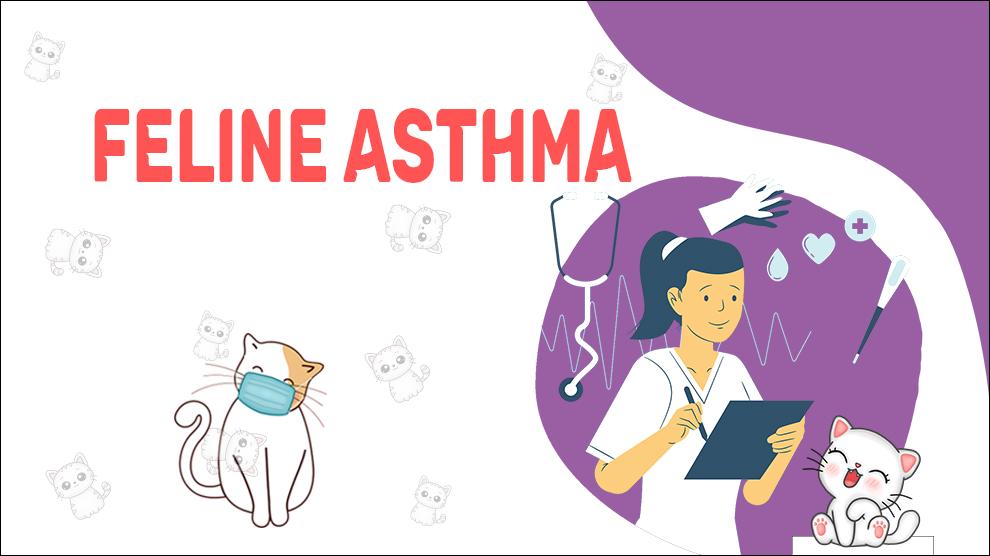What Is Feline Asthma?
Feline asthma is a respiratory condition that causes inflammation and narrowing of the airways, making it difficult for cats to breathe.
It is a common condition in cats, and it is often caused by allergens or irritants in the environment.
The condition can be managed with medication and environmental management, but it can also be life-threatening if left untreated.
Clinical Signs Of Feline Asthma
The most common symptom of feline asthma is coughing, which may be dry or produce mucus.
Other symptoms may include:
- Wheezing
- Difficulty breathing
- Rapid breathing
- Open-mouth breathing
- Panting
- Lethargy
- Loss of appetite
- Weight loss
- Blue gums or tongue due to lack of oxygen
- Coughing
- Vomiting
- Weakness
- Gagging
Treatment Options For Feline Asthma
Feline asthma is a chronic condition that requires ongoing management. Treatment typically involves the use of corticosteroids, such as prednisone, to reduce inflammation and improve breathing.
Bronchodilators, such as albuterol, may also be used to open the airways. In severe cases, oxygen therapy may be necessary.
Environmental management is also important, including reducing exposure to allergens and irritants in the cat's environment.
Home Remedies For Feline Asthma
There are several home remedies that may help manage feline asthma symptoms.
These include using a humidifier to moisten the air, adding omega-3 fatty acids to the cat's diet, and using natural remedies such as honey, ginger, and chamomile.
However, it is important to talk to a vet before trying any home remedies, as some may not be safe or effective.
How To Prevent Feline Asthma?
Preventing feline asthma involves reducing exposure to airborne allergens and irritants.
This may involve changing litter types, using air purifiers, and avoiding cigarette smoke.
Stress reduction techniques, such as environmental enrichment and calming pheromones, may also help prevent asthma attacks.
Affected Cat Breeds Of Feline Asthma
While any breed of cat can develop feline asthma, certain breeds may be more prone to the condition, including Siamese and Himalayan cats.
Causes For Feline Asthma
Causes:
Feline asthma is typically caused by exposure to airborne allergens or irritants, such as cigarette smoke, dust, pollen, mold, and certain types of litter.
Stress can also trigger asthma attacks in some cats. Certain breeds, such as Siamese and Himalayans, may be more prone to developing feline asthma.
When To See A Vet For Feline Asthma?
If you notice any of the symptoms of feline asthma in your cat, it is important to see a vet as soon as possible.
Feline asthma can be a life-threatening condition, and prompt treatment is necessary to prevent complications.
Food Suggestions For Feline Asthma
While there are no specific dietary recommendations for cats with asthma, it is important to feed a high-quality, balanced diet to support overall health and reduce the risk of obesity, which can worsen asthma symptoms.
Conclusion
Feline asthma is a common respiratory condition in cats that can be life-threatening if left untreated.
Symptoms include coughing, wheezing, difficulty breathing, and lethargy.
Treatment typically involves the use of medication, environmental management, and stress reduction techniques.
Preventing exposure to allergens and irritants is also important. While there are several home remedies.











